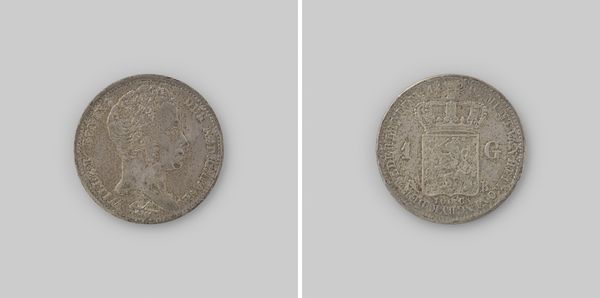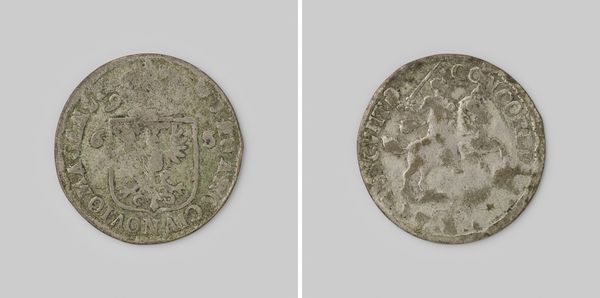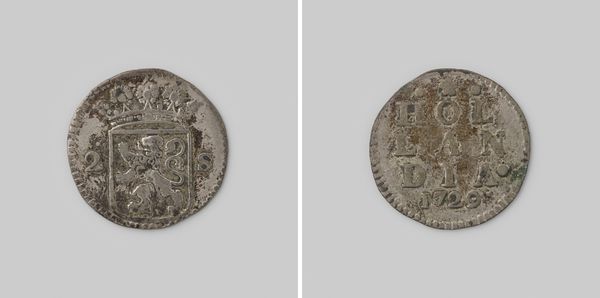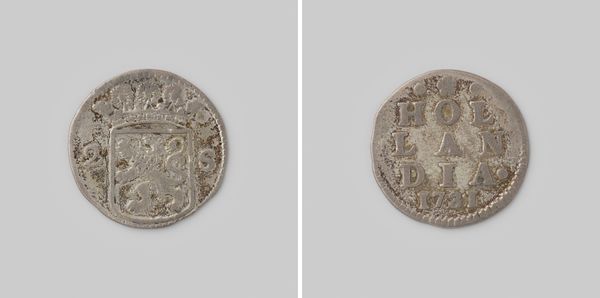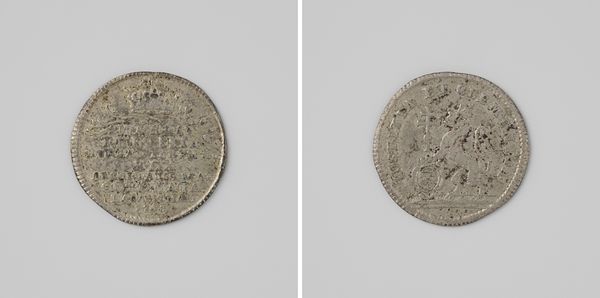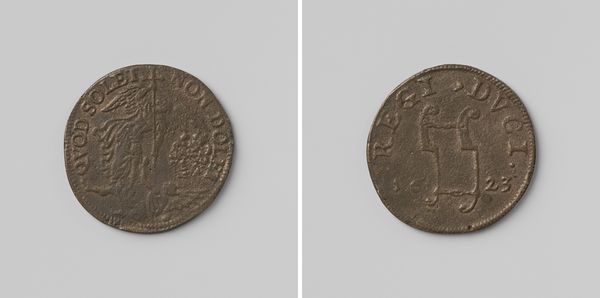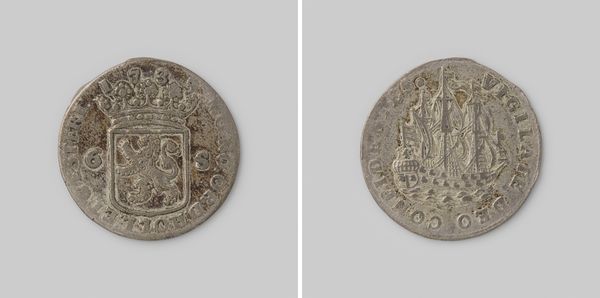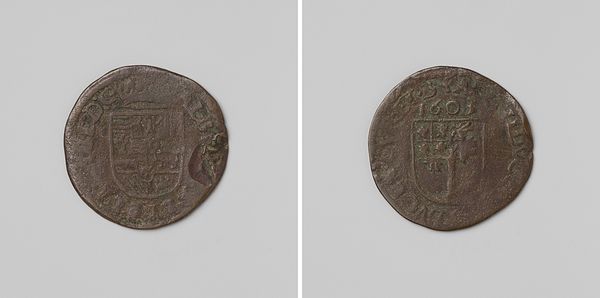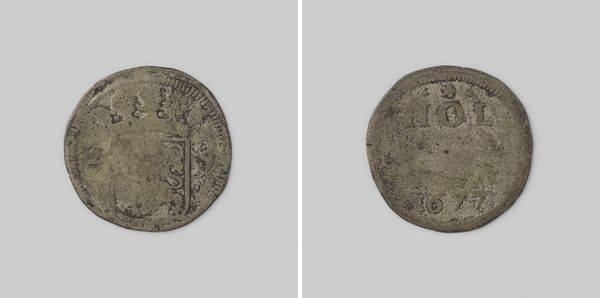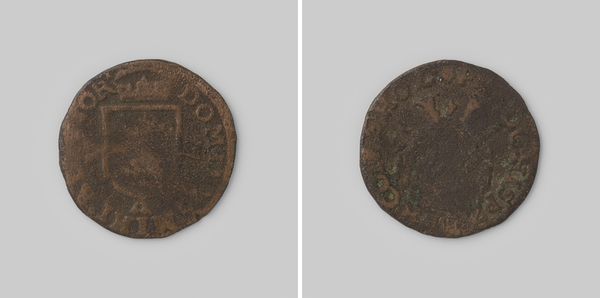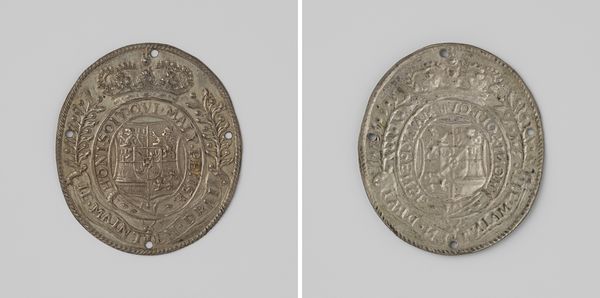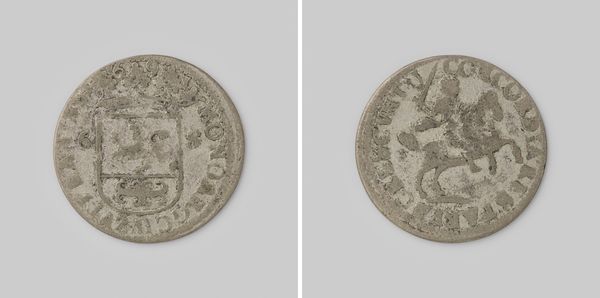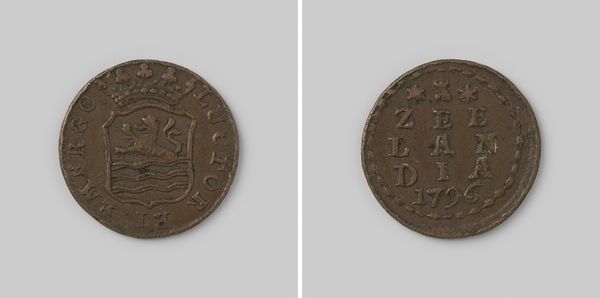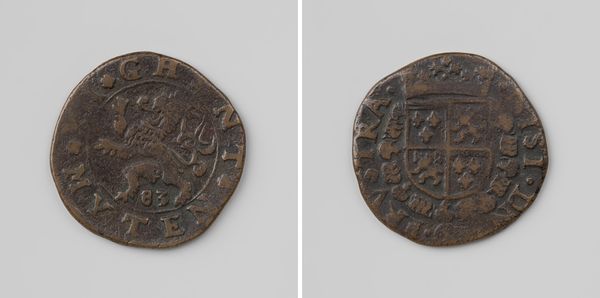
metal
#
metal
#
ancient-mediterranean
Dimensions: diameter 1.9 cm, weight 1.29 gr
Copyright: Rijks Museum: Open Domain
This ‘Hollandse dubbele stuiver’ was produced in 1721 by the Province of Holland. It’s a small, circular object with a tactile quality, its silver surface worn smooth by time and handling. The coin is structured around two distinct sides, each conveying different but related information. One side features a heraldic lion beneath a crown, enclosed within a shield-like form, flanked by the numeral '2' and the letter 'S.' The other side presents the word "HOLLANDIA" stacked vertically above the year "1721." The entire design is rendered in low relief, with the lettering and emblems emerging subtly from the coin's surface. The formal arrangement of symbols and text reflects a hierarchical order, where the heraldic emblem visually anchors the coin's identity to a specific political and geographic entity. This coin, therefore, functions as a semiotic device encoding power, identity, and value within a simple yet structured form.
Comments
No comments
Be the first to comment and join the conversation on the ultimate creative platform.
